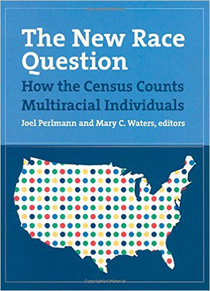
Research Topics
Publications on US Census Bureau
-
A Citizenship Question on the US Census
One-Pager No. 58 | November 2018What's New?
The Trump administration is facing a legal challenge to its efforts to add a citizenship question to the 2020 decennial census—a question that was first included in 1890, but has not been asked of the entire population since 1950. If the citizenship question was asked in the past, why not reinstate it? Senior Scholar Joel Perlmann explains how the characteristics of both immigration and the census itself have changed radically since 1890 and, as a result, how the inclusion of this question on the once-a-decade census would not only be redundant, but would threaten the integrity of the census count.Download:Associated Program:Author(s): -
The US Census Asks About Race and Ethnicity: 1980–2020
Policy Note 2015/8 | December 2015This policy note examines the formulation and reformulation of questions deployed by the US Census Bureau to gather information on racial and ethnic origin in recent decades. The likely outcome for the 2020 Census is that two older questions on race and Hispanic origin will be combined into a single question on ethno-racial origin. The authors welcome these changes but suggest that this may also be an opportune time to drop the “race or origin” label from this new, unified question. They also argue for modest and readily implemented modifications to capture valuable information on parental birthplaces in the American Community Survey. This information would support our ability to measure the social and economic well-being of the population and thus better understand the trajectory of demographic groups over time.
This policy note is accompanied by Working Paper No. 857, “Ethno-Racial Origin in US Federal Statistics: 1980–2020,“ in which the authors explore these issues in greater detail.
-
Ethno-Racial Origin in US Federal Statistics: 1980–2020
Working Paper No. 857 | December 2015This paper describes the transformations in federal classification of ethno-racial information since the civil rights era of the 1960s. These changes were introduced in the censuses of 1980 and 2000, and we anticipate another major change in the 2020 Census. The most important changes in 1980 introduced the Hispanic Origin and Ancestry questions and the elimination of two questions on parental birthplace. The latter decision has made it impossible to adequately track the progress of the new second generation. The change in 2000 allowed respondents to declare origins in more than one race; the anticipated change for 2020 will create a single question covering race and Hispanic Origin—or, stated more broadly, race and ethnic origin. We show that the 1980 changes created problems in race and ethnic classification that required a “fix,” and the transformation anticipated for 2020 will be that fix. Creating the unified question in the manner the Census Bureau is testing will accomplish by far the hardest part of what we believe should be done. However, we suggest two additional changes of a much simpler nature: restoring the parental birthplace questions (to the annual American Community Survey) and possibly eliminating the Ancestry question (the information it gathered will apparently now be obtained in the single race-and-ethnicity question). The paper is historical in focus. It surveys how the classification system prior to 1980 dealt with the tension between ethno-racial continuity and assimilation (differently for each major type of group); how the political pressures producing the changes of 1980 and 2000 changed the treatment of that tension; and, finally, the building pressure for a further change.
Download:Associated Programs:Immigration, Ethnicity, and Social Structure Economic Policy for the 21st Century Explorations in Theory and Empirical AnalysisAuthor(s):Joel Perlmann Patrick Nevada -
The New Race Question: How the Census Counts Multiracial Individuals
Book Series, December 2015 | November 2002Edited by Joel Perlmann and Mary C. Waters

The change in the way the federal government asked for information about race in the 2000 Census marked an important turning point in the way Americans measure race. By allowing respondents to choose more than one racial category for the first time, the Census Bureau challenged strongly held beliefs about the nature and definition of race in our society. The New Race Question is a wide-ranging examination of what we know about racial enumeration, the likely effects of the census change, and possible policy implications for the future.
Published by: Russell Sage
